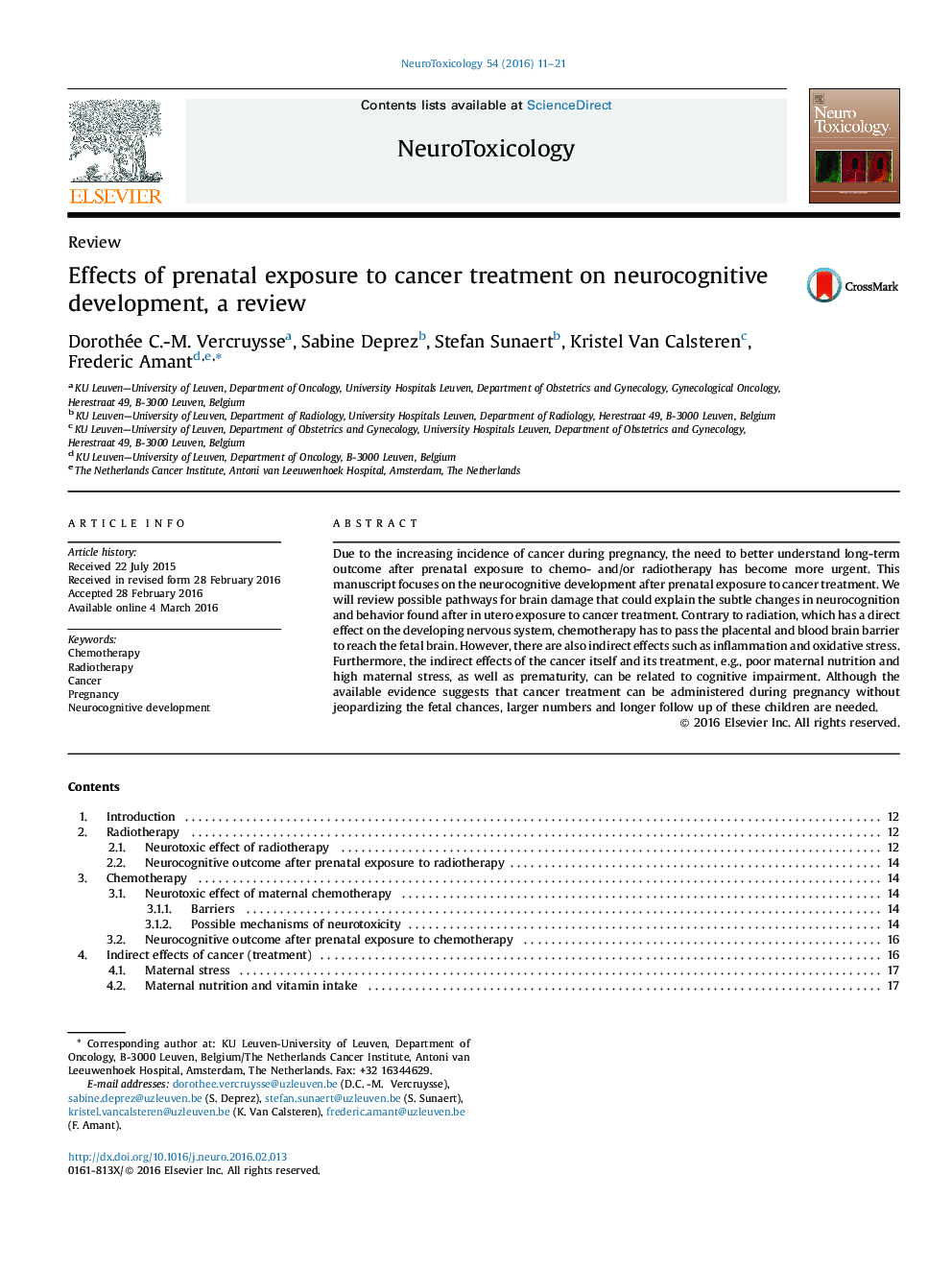| Article ID | Journal | Published Year | Pages | File Type |
|---|---|---|---|---|
| 5854714 | NeuroToxicology | 2016 | 11 Pages |
â¢Cancer can be treated adequately during pregnancy.â¢Subtle changes in cognition are found after prenatal exposure to cancer treatment.â¢Direct and indirect pathways for brain damage could explain the cognitive changes.â¢Further large scale long-term follow up studies are necessary.
Due to the increasing incidence of cancer during pregnancy, the need to better understand long-term outcome after prenatal exposure to chemo- and/or radiotherapy has become more urgent. This manuscript focuses on the neurocognitive development after prenatal exposure to cancer treatment. We will review possible pathways for brain damage that could explain the subtle changes in neurocognition and behavior found after in utero exposure to cancer treatment. Contrary to radiation, which has a direct effect on the developing nervous system, chemotherapy has to pass the placental and blood brain barrier to reach the fetal brain. However, there are also indirect effects such as inflammation and oxidative stress. Furthermore, the indirect effects of the cancer itself and its treatment, e.g., poor maternal nutrition and high maternal stress, as well as prematurity, can be related to cognitive impairment. Although the available evidence suggests that cancer treatment can be administered during pregnancy without jeopardizing the fetal chances, larger numbers and longer follow up of these children are needed.
